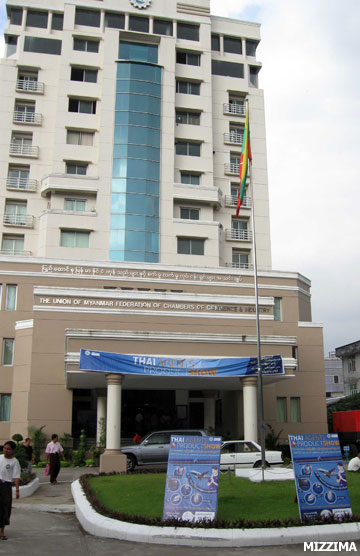The amended Foreign Investment Law will no longer require foreigners to establish businesses with Burmese citizens and will grant them a five-year tax holiday. The bill, passed by Parliament on Friday, must be signed by the president to become law.
 Foreigners are now allowed to own companies 100 per cent or to set up joint ventures with local citizens or government departments with involvement of at least 35 per cent foreign capital, according to an article published by the Xinhua news agency.
Foreigners are now allowed to own companies 100 per cent or to set up joint ventures with local citizens or government departments with involvement of at least 35 per cent foreign capital, according to an article published by the Xinhua news agency.
Foreign investors will be permitted to lease land from both the state and private citizens with an initial lease of up to 30 years, with additional 15-year extensions.
Foreign companies will not be allowed to recruit unskilled foreign workers and local citizens must make up at least 25 per cent of the skilled workforce after five years.
The percentage of Burmese workers' must be at least 50 per cent after 10 years and 75 per cent after 15 years.
The amendments prohibit nationalization of a foreigners' business during the period allowed in the contract or extended in the contract other than by giving compensation based on current prices in the market in the interest of the general public.
According to official statistics, Burma took in US$ 8.464 billion in foreign investment in 2011, of which $4.37 billion was earned during the nine months' period after the new civilian government took office on March 30 of 2011.
Chinese investment in the electric power sector totaled $7.532 billion.
Since the country opened to investments in late 1988, total foreign investment in Burma totals $40.429 billion in 458 projects as of January 2012
Of the 31 countries and regions investing in Burma, China led with $13.947 billion, accounting for 34.5 percent; followed by Thailand with $9.568 billion; China's Hong Kong with $6.308 billion; South Korea with $2.938 billion, Britain with $2.659 billion and Singapore with $1.818 billion.
Sector wise, electric power investment totaled $18.873 billion, accounting for 46.6 percent, followed by oil and gas with $13.815 billion, mining with $2.794 billion, manufacturing with $1.753 billion, hotels and tourism with $1.064 billion; and real estate with $1.056 billion.


